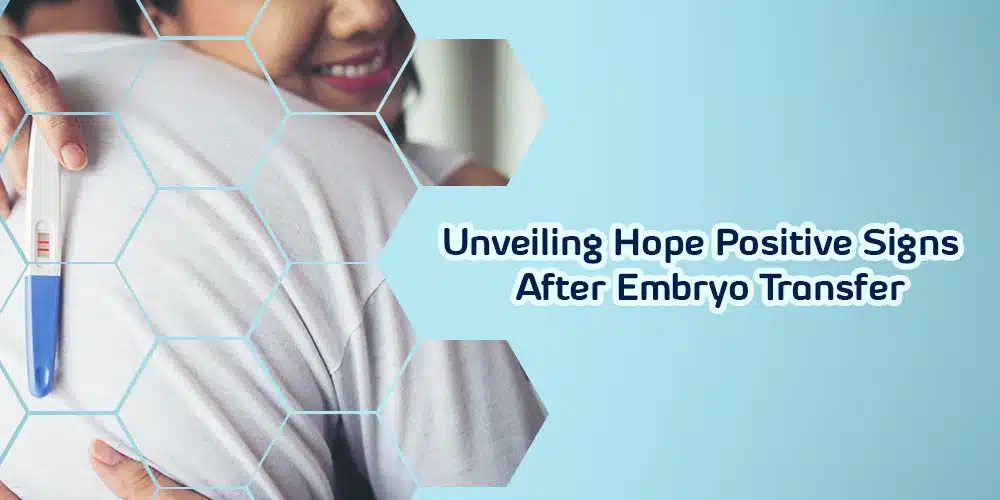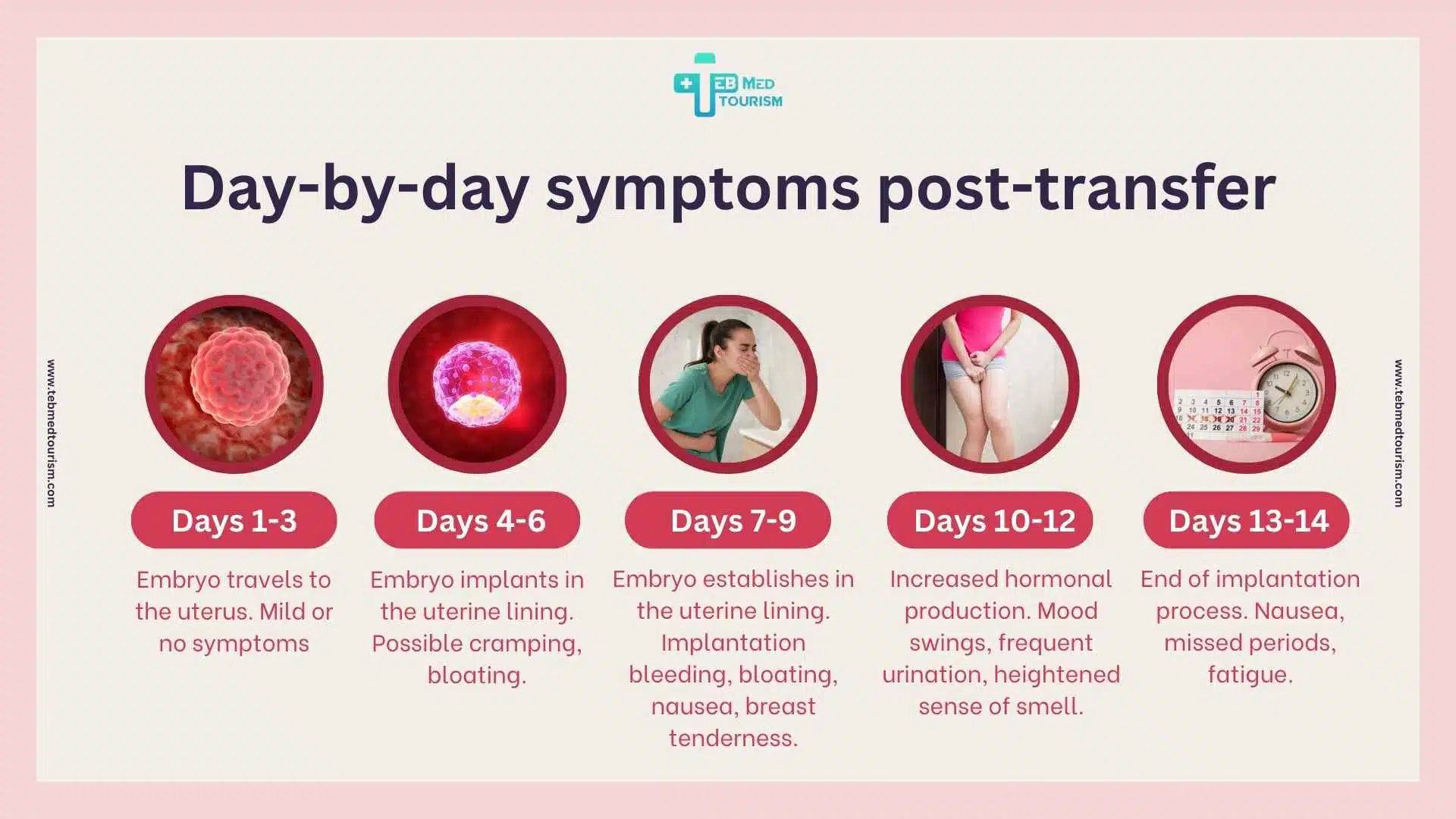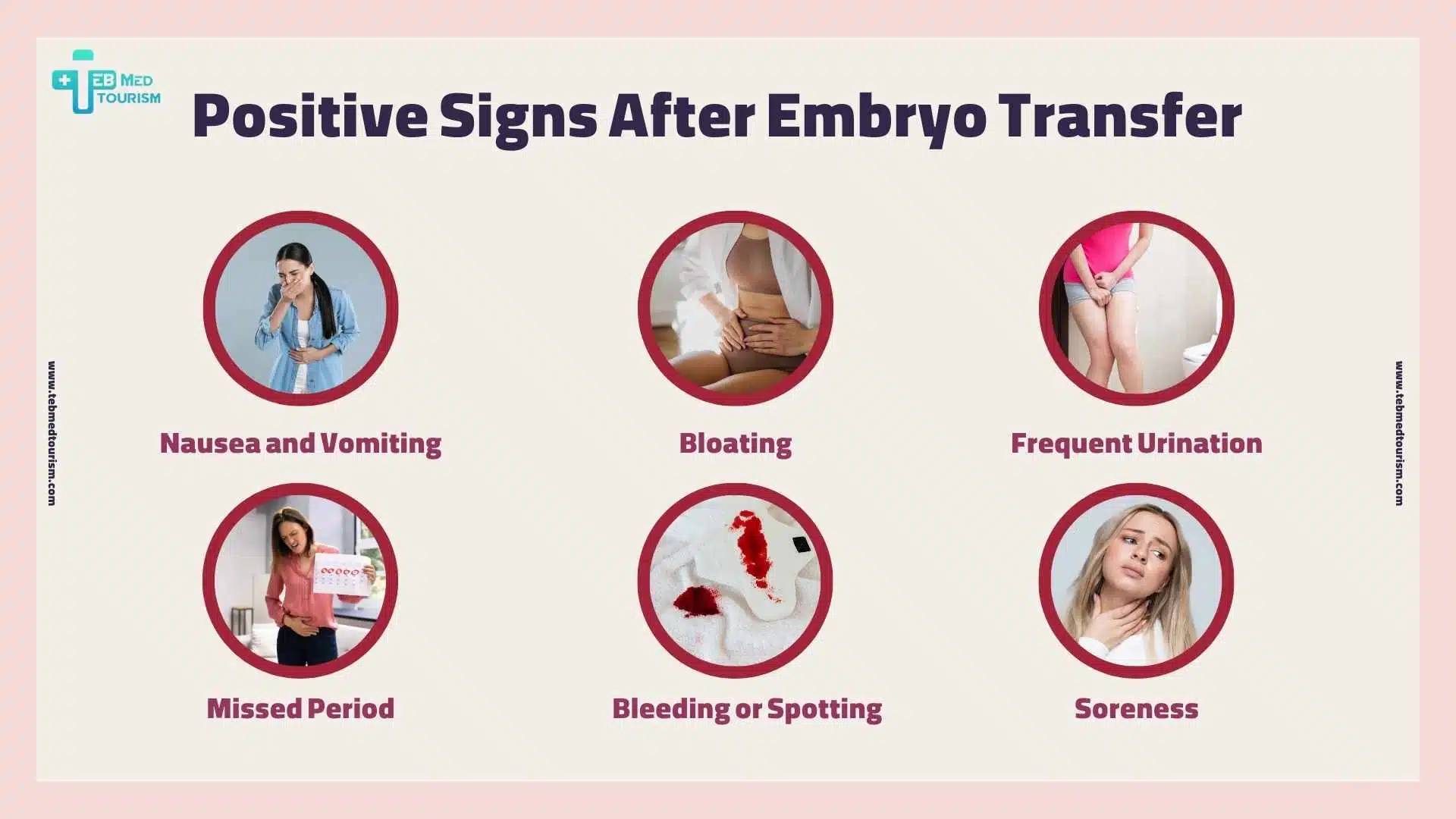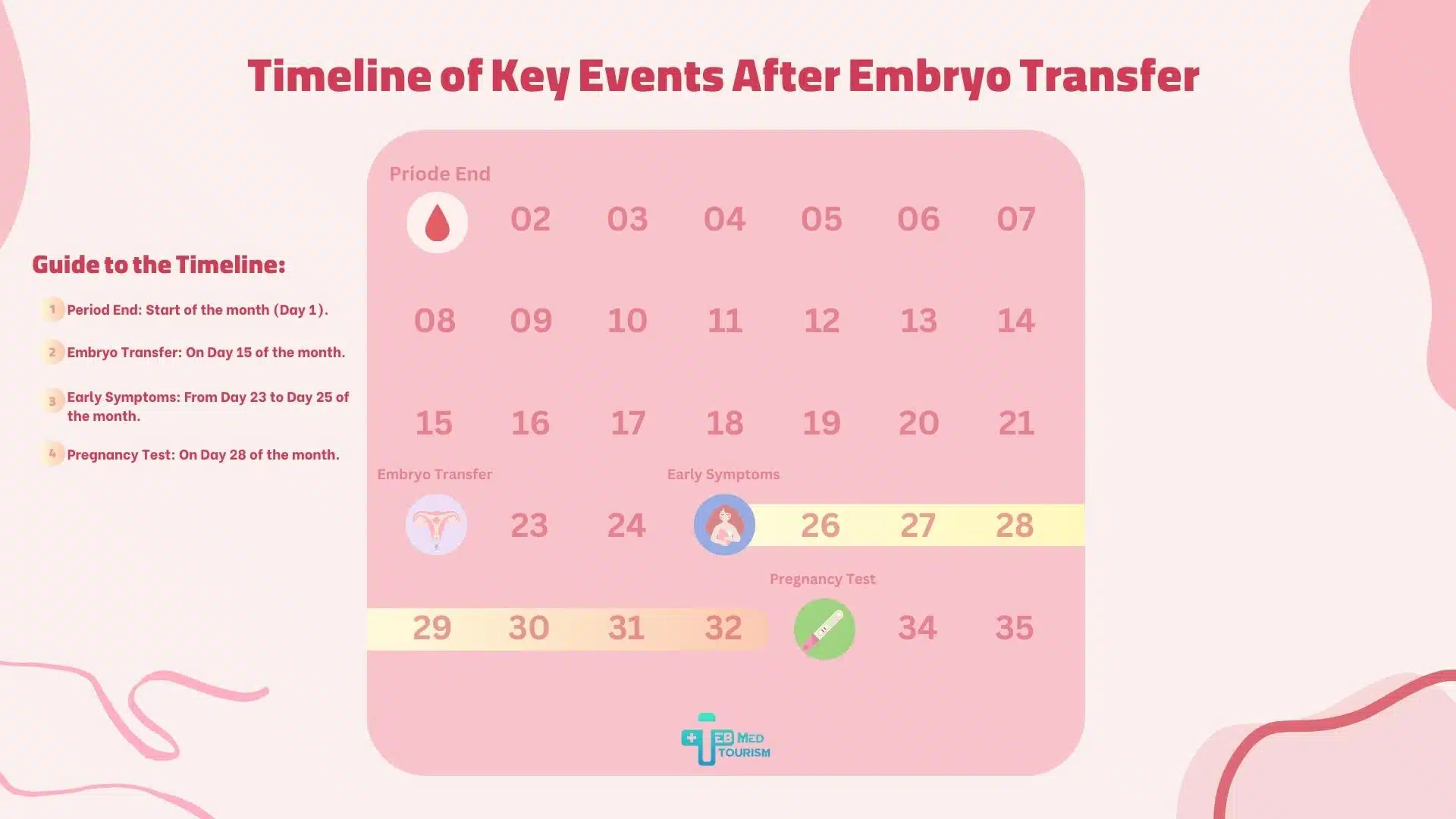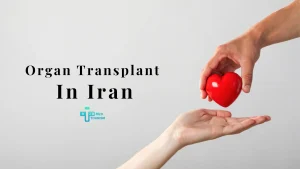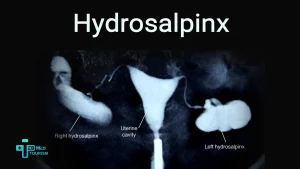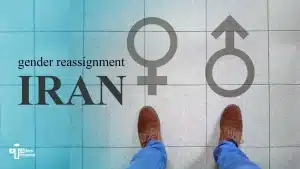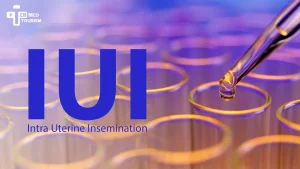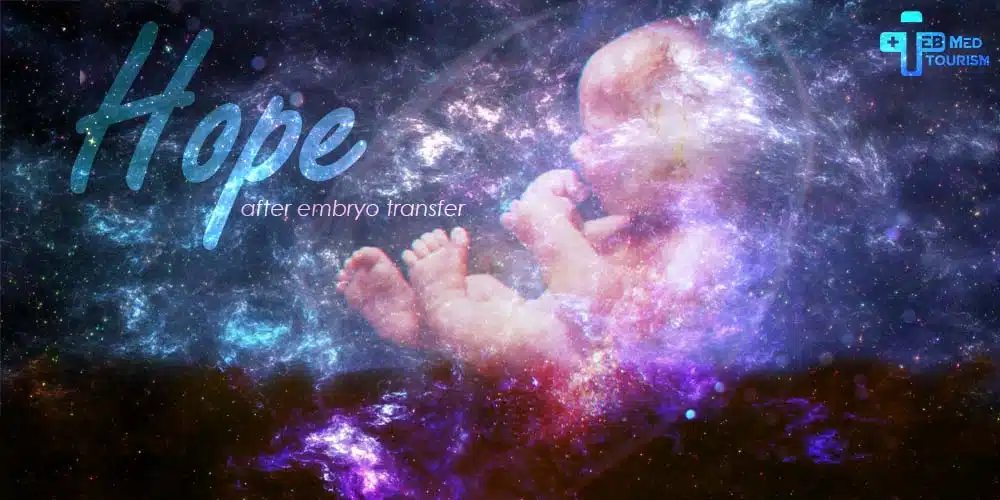
What Is Embryo Transfer?
Embryo transfer is a key step in the process of IVF in Iran and other countries, a common fertility treatment. During IVF, eggs are collected from a woman’s ovaries and fertilized with sperm in a laboratory. Once the eggs are fertilized and develop into embryos, one or more healthy embryos are selected to be placed into the woman’s uterus. This placement is what we call an embryo transfer.
The main goal of embryo transfer is to help the embryo implant itself into the uterine lining, where it can grow and develop into a healthy pregnancy. The procedure is usually simple and does not require anesthesia. A thin tube called a catheter is used to gently place the embryo(s) into the uterus through the cervix.
Embryo transfer can be done at different stages of embryo development, typically either on the third day after fertilization or when the embryo has reached the blastocyst stage, usually around five days. The timing and number of embryos transferred depend on various factors, including the parents’ age, the quality of the embryos, and previous fertility history.
Success rates for embryo transfer vary, but selecting the best-quality embryos and transferring the right number can improve the chances of a healthy pregnancy. After the transfer, doctors may recommend taking certain medications to support the uterine lining and enhance the chances of implantation.
Overall, embryo transfer is a hopeful and carefully managed part of the IVF process, aiming to help individuals and couples achieve their dreams of having a child.
What to Expect After Embryo Transfer?
After an embryo transfer, it’s natural to feel a mix of emotions, including hope, excitement, and maybe even some anxiety. Understanding what happens in the days and weeks following the procedure can help you stay informed and calm.
While every person’s experience is unique, there are common physical and emotional changes that many go through. Knowing what to expect can prepare you for the journey ahead and help you recognize positive signs that everything is progressing well.
Day-by-Day Symptoms After Embryo Transfer
In the days following an embryo transfer, your body may experience a variety of symptoms. These can range from mild to more noticeable changes. It’s important to remember that everyone’s body reacts differently, and experiencing some symptoms doesn’t always mean that the transfer was successful. Here’s a general overview of what you might expect:
- Day 1-3: In the days following your embryo transfer, your body begins the important process of implantation. You might not notice any specific symptoms during this time. The blastocyte starts to attach itself to the lining of your uterus. This stage is crucial for the embryo to establish a connection and begin growing.
- Day 4-5: Around five days after the transfer, the embryo’s implantation becomes more established. Some women may start to feel mild cramping or a sensation of heaviness in the pelvic area. These feelings are generally gentle and can be similar to the discomfort you might experience before your period.
- Day 6-9: Between days six and nine, the embryo continues to develop, and your body starts producing the hormone hCG (human chorionic gonadotropin). By the eighth day, hCG levels increase in your bloodstream, which is an important indicator that the embryo is growing. Around the ninth day, the hCG hormone may reach levels high enough to be detected by a pregnancy test.
- Day 10-14: In the second week after the transfer, you might begin to notice some early pregnancy symptoms. These can include breast tenderness, feeling more tired than usual and mild nausea. These signs are similar to what some women experience with premenstrual syndrome (PMS).
It’s important to monitor these symptoms and keep track of any changes. However, it’s equally important to remember that the absence of symptoms does not necessarily indicate that the transfer was unsuccessful.
Early Positive Signs After Embryo Transfer
While many symptoms after an embryo transfer are similar to those experienced during a regular menstrual cycle, certain signs may indicate that the embryo is successfully implanting and that a pregnancy is developing. Here are some early positive signs to watch for:
- Bleeding or Spotting: Light bleeding or spotting, often referred to as “implantation bleeding,” can occur when the embryo attaches to the uterine lining. This typically happens about 6–12 days after fertilization and is usually lighter and shorter than a regular period. While not everyone experiences spotting, its presence can be an encouraging sign of implantation.
- Cramping and Pelvic Discomfort: Mild cramping similar to menstrual cramps can occur as the uterus adjusts to the presence of the embryo. This discomfort is generally gentle and intermittent. Persistent or severe cramping should be discussed with your healthcare provider to rule out any complications.
- Tender or Sore Breasts: Hormonal changes following an embryo transfer can lead to breast tenderness or soreness. This symptom is common in early pregnancy and can be a reassuring sign that your body is responding to the potential pregnancy.
- Fatigue and Tiredness: Feeling unusually tired is a common early sign of pregnancy. Increased levels of the hormone progesterone can make you feel more fatigued than usual as your body works to support the developing embryo.
- Nausea and Vomiting: Some individuals may begin to experience mild nausea or even vomiting, often referred to as “morning sickness.” While this is more commonly associated with later stages of pregnancy, some may notice these symptoms as early as a week or two after embryo transfer.
- Bloating and Abdominal Heaviness: Hormonal changes can cause bloating and a feeling of heaviness or fullness in the abdomen. This sensation is similar to what many experience during their menstrual cycle but can persist or become more noticeable in early pregnancy.
- Increased Vaginal Discharge: An increase in clear or whitish vaginal discharge, known as leukorrhea, is a normal part of early pregnancy. This discharge helps protect the uterus from infection and is typically mild and non-irritating.
- Frequent Urination: As the body begins to produce more blood to support the pregnancy, the kidneys work harder to eliminate excess fluid, leading to more frequent trips to the bathroom. This symptom can start early and may be a positive indicator of increased blood flow and hormonal activity.
- Missed Period: Perhaps the most well-known sign of pregnancy is a missed period. If your embryo transfer was timed to coincide with your expected menstrual cycle, not having your period can be a strong indicator that implantation has occurred and that pregnancy may be progressing.
Remember, while these signs can be encouraging, the only definitive way to confirm a pregnancy is through a medical test, such as a blood test or ultrasound, conducted by your healthcare provider. It’s essential to maintain open communication with your medical team and follow their recommendations throughout this process.
When to Take a Pregnancy Test After Embryo Transfer?
Determining the right time to take a pregnancy test after an embryo transfer is an important step in your fertility journey. Taking the test too early can lead to inaccurate results, while waiting the appropriate amount of time increases the likelihood of a reliable outcome.
Typically, it is recommended to wait about 10 to 14 days after the embryo transfer before taking a pregnancy test. This waiting period allows enough time for the embryo to implant into the uterine lining and for the body to produce detectable levels of the pregnancy hormone, human chorionic gonadotropin (hCG).
There are two main types of pregnancy tests you can use: blood tests and urine tests. Blood tests, which are conducted in a medical laboratory, are more sensitive and can detect lower levels of hCG earlier than home urine tests.
Your healthcare provider may schedule a blood test, often referred to as a beta hCG test, around two weeks after the transfer to provide a clear and accurate result. Urine tests, on the other hand, can be done at home and are more convenient, but they may require waiting until closer to the two-week mark for the most reliable results.
It’s important to follow your doctor’s specific instructions regarding when and how to take the test, as individual circumstances can vary. Factors such as the type of embryo transfer, the medications you are taking, and your unique hormonal responses can influence the optimal timing for testing.
Additionally, maintaining regular communication with your fertility specialist during this period can help address any questions or concerns you may have about the testing process and the results.
Patience during this waiting period can be challenging, but understanding the reasons behind the recommended timing can help you manage your expectations and reduce unnecessary stress.
Remember that every person’s body responds differently, and the absence of immediate symptoms does not necessarily indicate the outcome of the transfer.
y waiting the appropriate amount of time and using the correct testing methods, you increase the chances of obtaining an accurate result, providing you with the clarity you need as you move forward in your fertility journey.
Factors That May Impact Symptoms and Outcomes
Several factors can influence the symptoms you experience and the overall success of your embryo transfer. Understanding these factors can help you manage your expectations and take steps to improve your chances of a positive outcome. Here are some key elements that may affect your experience after an embryo transfer:
Age
Age is one of the most significant factors in fertility and the success of embryo transfers. Younger individuals generally have higher success rates because their eggs are typically healthier and more viable. As age increases, the quality and quantity of eggs can decline, which may impact the chances of implantation and a successful pregnancy.
Embryo Quality
The quality of the embryo being transferred plays a crucial role in the success of the procedure. High-quality embryos are more likely to implant successfully and develop into a healthy pregnancy.
Embryos are assessed based on their appearance and development rate in the laboratory before transfer. Selecting the best-quality embryos can enhance the likelihood of positive outcomes.
Uterine Health
A healthy uterus is essential for the successful implantation of an embryo. Conditions such as fibroids, polyps, or scar tissue in the uterus can affect implantation and pregnancy. Doctors often evaluate the uterine environment before the transfer to ensure it is conducive to supporting a pregnancy.
Hormonal Balance
Hormones regulate many aspects of the reproductive process. Proper hormonal balance is necessary to prepare the uterine lining for implantation and to support early pregnancy. Imbalances in hormones like progesterone or estrogen can impact the success of the embryo transfer and the symptoms you may experience afterward.
Lifestyle Factors
Lifestyle choices can influence both the symptoms you experience and the success of your embryo transfer. Factors such as smoking, excessive alcohol consumption, poor diet, and high levels of stress can negatively affect fertility and implantation rates. Maintaining a healthy lifestyle can improve your chances of a successful pregnancy.
Previous Fertility History
Your past experiences with fertility treatments can provide insight into what to expect with an embryo transfer. Individuals or couples who have had previous successful transfers may feel more confident, while those who have faced challenges might experience heightened emotions. Additionally, a history of recurrent miscarriages or implantation failures can impact the approach and support provided during the current transfer.
Medications and Treatments
Medications prescribed before and after the embryo transfer are designed to support the process and enhance the chances of implantation. The type and dosage of these medications can influence both the symptoms you feel and the overall success of the transfer. It’s important to follow your doctor’s instructions carefully and communicate any side effects or concerns you may have.
Stress and Emotional Well-being
Emotional well-being plays a significant role in the fertility treatment process. High levels of stress and anxiety can affect your physical health and potentially impact the success of an embryo transfer.
Engaging in relaxation techniques, seeking support from loved ones, or consulting a mental health professional can help manage stress and improve your overall experience.
Body Mass Index (BMI)
Your body mass index (BMI) can influence fertility and the success rates of embryo transfers. Both underweight and overweight individuals may face challenges with implantation and maintaining a healthy pregnancy. Achieving a healthy BMI through proper nutrition and exercise can enhance your chances of a successful outcome.
Timing of the Transfer
The timing of the embryo transfer in relation to the development stage of the embryo and the preparation of the uterine lining is critical. Transferring the embryo at the optimal time can improve implantation rates and reduce the risk of complications. Your medical team will carefully schedule the transfer to align with these factors.
Improving Your Chances of Success After Embryo Transfer
Achieving a successful embryo transfer involves more than just the medical procedure itself. There are several steps you can take to enhance the likelihood of implantation and a healthy pregnancy.
By adopting healthy habits and following your healthcare provider’s recommendations, you can create an optimal environment for your embryo to thrive. Here are some effective strategies to improve your chances of success after an embryo transfer:
- Follow Your Medication Plan
- Maintain a Healthy Diet
- Stay Hydrated
- Manage Stress
- Get Adequate Rest
- Engage in Gentle Exercise
- Avoid Harmful Substances
- Follow Medical Appointments and Instructions
- Create a Supportive Environment
- Avoid Environmental Toxins
Implementing these practices can help create a favorable environment for your embryo to implant and develop into a healthy pregnancy.
Are There Negative Signs After Embryo Transfer?
After an embryo transfer, it’s natural to be vigilant about how your body feels, as certain symptoms can indicate different outcomes.
Spotting and abdominal pain are common experiences during this time and can sometimes be confusing because they may signal both positive and negative developments.
On one hand, light spotting and abdominal pain can be signs of successful implantation, where the embryo is attaching to the uterine lining. On the other hand, heavier spotting or bleeding may suggest potential complications, such as a threatened miscarriage.
It’s important to monitor the intensity and duration of any bleeding or discomfort you experience. Additionally, other concerning symptoms like severe pain, dizziness, or fainting require immediate medical evaluation. Understanding that some symptoms have dual meanings highlights the importance of maintaining open communication with your medical team, who can provide guidance and support based on your specific situation.
Preparing for a Successful Embryo Transfer with TebMedTourism
Preparing for a successful embryo transfer is a crucial part of the IVF process, and with TebMedTourism, you can ensure the best possible outcome. The key to success lies in careful planning and attention to detail throughout the journey.
First, it’s important to have a thorough evaluation of your medical history. This will help the fertility specialists at TebMedTourism create a personalized treatment plan that fits your needs. You will also undergo a series of tests to check your hormone levels, the health of your uterus, and the quality of the embryos.
Before the procedure, you will receive clear instructions on how to prepare your body. This may involve hormone treatments like progesterone to help your uterus become the perfect environment for the embryo.
It’s also important to maintain a healthy lifestyle by eating well, staying hydrated, and avoiding stress. Your fertility team will guide you on what to avoid, such as certain medications, alcohol, or smoking, which can affect the success rate of the transfer.
The embryo transfer itself is a delicate procedure, but with TebMedTourism, you are in the hands of experienced specialists who use the latest technology and techniques. After the transfer, it’s essential to rest and follow the instructions given by your doctor.
This period can be emotional, but remember that your medical team is always available for support and guidance. They’ll help you through each step, from pre-transfer preparation to post-transfer care, ensuring your best chance for success.
FAQs About Positive Signs After Embryo Transfer
Now, let’s answer some frequently asked questions about the positive signs you may experience after an embryo transfer.
How soon after embryo transfer do pregnancy symptoms start?
Pregnancy symptoms can start as early as 1-2 weeks after embryo transfer, but it varies for each person. Some women may experience mild symptoms like bloating, fatigue, or tenderness in the breasts. However, it’s important to wait for a blood test to confirm pregnancy, as early symptoms can also be caused by the hormones used in IVF treatment.
How do you know if embryo transfer has worked?
The most reliable way to know if embryo transfer has worked is through a blood test for pregnancy, typically done about 10-14 days after the transfer. Early signs of pregnancy, like mild cramping or spotting, can also occur, but they are not always conclusive. A positive blood test confirms pregnancy, while a negative test indicates that the transfer was unsuccessful.
What happens if you have no symptoms after the transfer?
Not having symptoms after an embryo transfer doesn’t necessarily mean it was unsuccessful. Some women may not feel any symptoms at all, even if they’re pregnant. Symptoms like fatigue, bloating, or cramping can vary widely. The only sure way to know is through a blood test, which will confirm whether or not pregnancy has occurred.
Do frozen embryos take longer to implant?
Frozen embryos generally do not take longer to implant than fresh embryos. The process of implantation depends on the embryo’s quality and the woman’s body. While some studies suggest slight differences in success rates, frozen embryos can implant just as successfully as fresh ones. The key factor is the preparation of the uterine lining, which is carefully managed in both cases.
What are the signs of implantation failure?
Signs of implantation failure can include heavy bleeding around 7-10 days after embryo transfer. This can be accompanied by cramping or discomfort. However, some women may not experience any symptoms at all. The most reliable way to confirm implantation failure is through a blood test to check for pregnancy hormones.
Conclusion
In conclusion, recognizing positive signs after embryo transfer can bring a sense of reassurance and hope during a time filled with uncertainty. While each individual’s experience is unique, staying informed about the potential signs can help you navigate the process with confidence. Remember, early signs such as mild cramping, fatigue, or light spotting can be encouraging, but the best way to confirm a pregnancy is through a professional test. As you await the results, it’s essential to maintain open communication with your healthcare team and take care of your emotional and physical well-being. Stay hopeful and know that each step brings you closer to your dream of parenthood.







